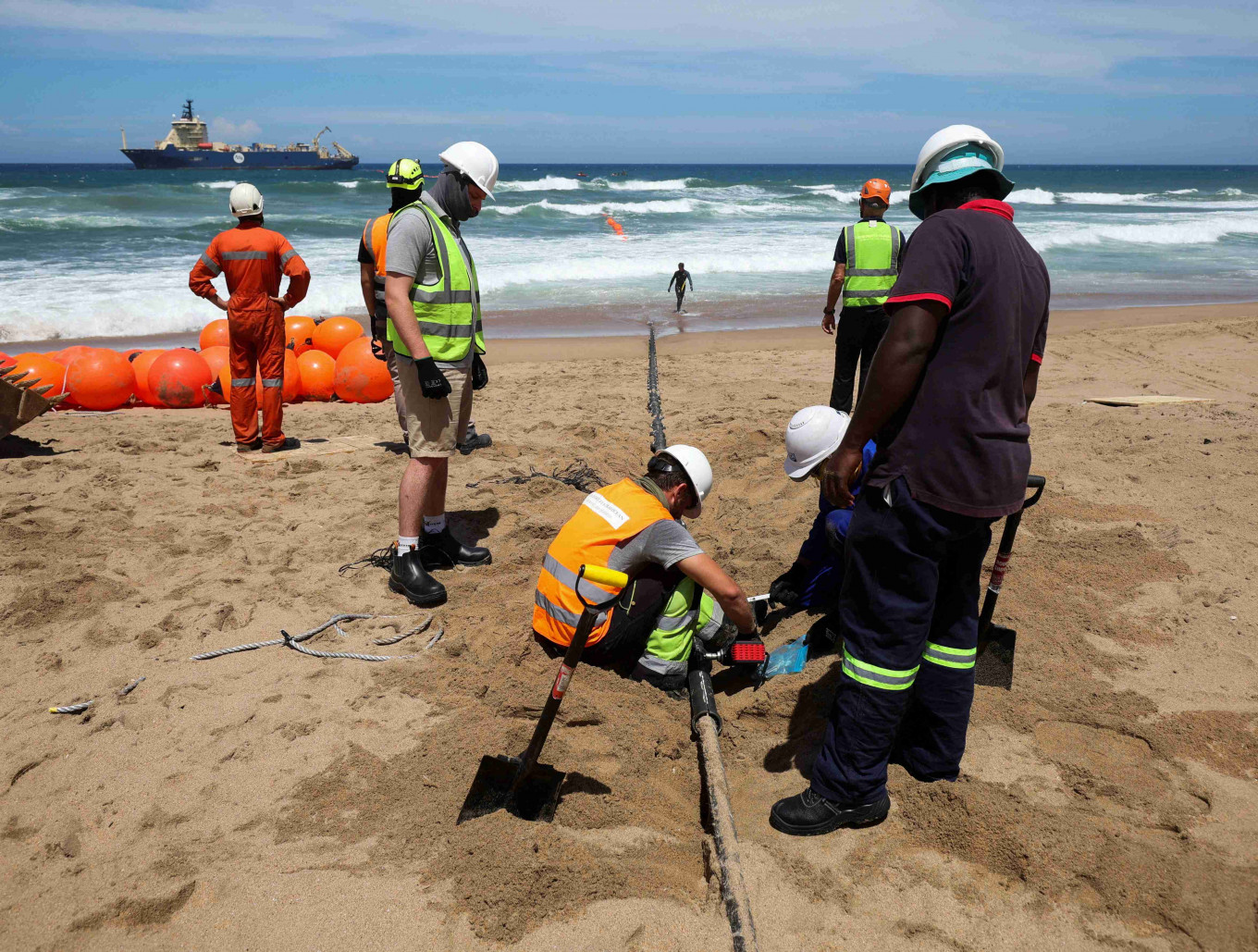Popular Reads
Top Results
Can't find what you're looking for?
View all search resultsPopular Reads
Top Results
Can't find what you're looking for?
View all search resultsNavigating geopolitical tensions: Indonesia's opportunity to boost digital economy
Subsea cables have led to a 5.4 percent increase in Indonesia’s gross domestic product (GDP) per capita between 2012 and 2017.
Change text size
Gift Premium Articles
to Anyone
I
ndonesia’s digital economy could benefit from the growing United States-China tech war as the ongoing conflicts prompted many subsea internet cable owners to avoid the contested waters and seek more viable locations to power the global internet.
Subsea cables, the key backbone of internet infrastructure carrying the world's data, have increasingly become central to the US-China tech war.
Recent reports from Reuters found the US government intervening in six private subsea internet cables, including by forcing the rerouting or abandonment of cables from linking US and Chinese territories directly for security reasons.
Meanwhile, China has recently begun to impede subsea cable projects to lay and maintain subsea internet cables in South China Sea, according to a report from the Financial Times, including requiring permits for work outside the country’s internationally recognized waters in a move aimed at establishing control in the strategic waterway.
These issues have led international investors to look to other locations. Indonesia’s geographical position, which is between Asia and Australia and between the Indian and Pacific Oceans, coupled with its position as Southeast Asia’s largest digital economy, have positioned it favorably as a viable option for companies looking to deploy internet subsea cables whilst mitigating geopolitical risks in the South China Sea.
Despite being the largest digital economy in the Southeast Asia region, Indonesia’s overall internet connectivity only ranks 66 globally, below other Southeast Asian countries namely Singapore, Malaysia, Thailand and Vietnam, according to the 2021 Economist Intelligence Unit’s Inclusive Internet Index.
Several strategic investments in international subsea cables have been announced over the past two years in Indonesia, with several internet cables looking to connect Indonesia directly to the US, Japan and Australia, among other countries. Not only that these investments would increase internet connectivity for hundreds of millions of digital customers and small and medium enterprises (SMEs), these would also support Indonesia’s desire to become the digital hub of the Asia-Pacific region and jack up economic growth.
From a growth standpoint, an RTI study released in 2020 found that subsea cables have led to a 5.4 percent increase in Indonesia’s gross domestic product (GDP) per capita between 2012 and 2017.
Indonesia is not the only country looking to benefit from the current geopolitical situation. Australia is also looking to join the race to be the preferred landing location in the region as telco players there advocated for increased subsea cable protection zones to ensure cable safety and boost investors’ confidence in investing in subsea cables.
While Indonesia seems attractive for prospective investors thanks to its young population, strategic geographic location and significant market size amid the ongoing geopolitical tension, the current regulatory framework for subsea cable deployment remains challenging for businesses.
The Maritime Affairs and Fisheries Ministry issued a decree in 2021 on subsea cable and pipe corridors to regulate areas where subsea cables can pass through to avoid other marine activities such as fishing and military operations. While this regulation is aimed at managing the marine areas better, establishing a strict corridor for subsea cable raises the risk for internet connectivity.
Imagine if an earthquake or volcanic eruption strikes an area in which the subsea cables are located, this could put all the internet cables in the area at risk. At worst, this could cause an internet blackout, similar to what happened to the Pacific Island nation of Tonga last year when a volcanic eruption left it without internet access for more than a month.
To mitigate such a risk, the government needs to consider flexibility for cables to be deployed in accordance with international best practices and consider subsea internet cables as national vital objects to ensure the safe operation of cables and achieve reliability of internet connectivity.
Implementing such measures would also complement the government’s recent efforts to improve the investment climate in subsea internet cables.
The Indonesian digital economy could only truly benefit from the geopolitical tension if it is able to create the best conditions possible to encourage subsea cable investments, better protect its internet cables and position itself strategically as an alternative landing location.
We need to put long-term competitiveness on the agenda and work to incentivize investments in internet infrastructure, shorten the amount of time to obtain permits, strengthen subsea cable protection, invest more in research and development and remove barriers to entry in order to benefit from the ongoing tech war and ultimately boost the country’s internet economy.
***
The writer is a senior analyst at BowerGroupAsia. The views expressed are his own.










